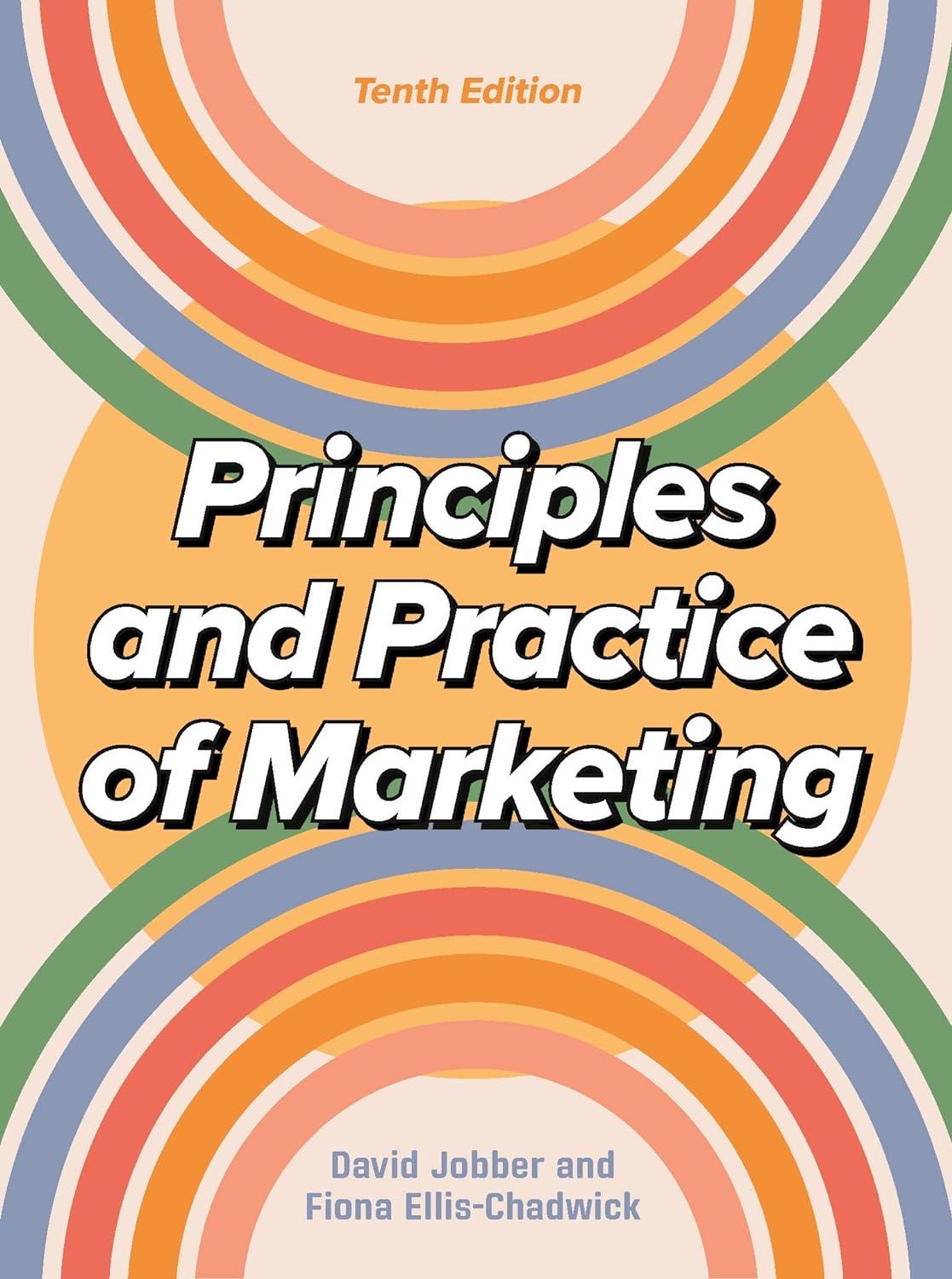Millennials are a maturing generation born in the period from around 1980 to 2000. They are a
Question:
Millennials are a maturing generation born in the period from around 1980 to 2000. They are a different breed of consumer, having grown up with digital media, and are experts in the use of the internet, social media and mobile technology to facilitate every aspect of their lives. Across the world, from the US to China, the two-billion-strong millennial generation has come of age, and is overtaking Generation X and the baby boomers in terms of spending power.
Previously, millennials have been portrayed in mainstream media as ‘lazy, debt-laden, social-media obsessed fame seekers’, yet they have now become a generation most wanted by brands (Barton et al. 2012) and are making their preferences felt during purchase decisions. They are setting down roots, buying houses, growing their families and exploring how things can be done differently, both personally and in terms of the products and services they buy. For example, their selection of alternative modes of travel and reduced car ownership reflects their changing lifestyles, beliefs and aspirations.
There is little doubt marketers must think and act differently to build relationships with this generation, who are adept at using technology as part of their daily lives. According to Simonson and Rosen (2014), ‘In the past, buyers typically made relative comparisons (“Is Brand A better than Brand B?”) or went by the maxim “You get what you pay for”.’ Buyers largely had to rely on information provided by suppliers, media reports and word of mouth from personal friends and acquaintances who had personal experience of a brand. Digital media channels – especially social media channels – have opened up opportunities for smaller independent brands to reach out to this generation of websavvy consumers, who are more prepared to experiment than were previous generations.
Millennials are very active when it comes to consulting social media for information about physical products, brand experiences and service quality, to inform their purchasing decisions. Social media provides an increasingly rich tapestry of reviews of customer experiences. They are also keen to use and provide peer-to-peer reviews on products and services, giving potential buyers the opportunity to get a sense of what it’s like to own or use the goods they’re considering and enabling edgier brands (e.g. Urban Decay) to gain a foothold.
In 2018, it was predicted that global millennial spending power would overtake that of Gen X by 2020 and then continue to rise (see table).

Brands, marketers and start-up businesses need to recognize the following differences when targeting millennials:
• Desires: this generation wants more from the brands they choose to engage with; they are keen to co-create by sharing opinions, reviews and feedback through social media and the web. They will endorse the things they approve of, but shout about things they despise. They are also happy to engage in such activities around the clock and tend to react instantaneously. The implications for marketers are brands do not have to wait to poll opinions about a new product launch; they can accurately gauge consumer reactions almost instantly online. But brands must ensure authenticity and transparency if they wish to avoid the wrath of a millennial backlash to a product offer perceived to be ‘phoney’ or unfair.
• Demands: experiences are important, as are new and innovative products and services. While rational functionality is key, as a millennial is likely to be the ‘chief technology officer’ in many households, they also like emotional rewards and instant gratification, which must be delivered appropriately and quickly. Pleasure, fun and adventure are also cravings of this generation, who are prepared to do things differently, from ordering an instant taxi (Uber) and staying in someone else’s home instead of using a recognized accommodation provider (Airbnb), to having a personal shopper manage their luxury clothing online orders (Net-a-Porter).
• Influencers: millennials’ lives are directly interconnected with others and so are heavily affected by the views of their peers. Their purchasing behaviour is strongly influenced by their large network of online ‘friends’ and, unlike previous generations, they turn more readily to online peer networks for advice and ideas, which they openly share online.
So what are the new rules for marketers wishing to develop relational networks with millennials?.........
Questions:
1. How can brands use digital media to support brand development?
2. How might social media affect the value of a brand name when targeting millennials? Discuss positive and negative influences.
3. For a brand of your choice, decide which distinct millennial segment is the most likely target group. Then suggest which digital media they are most likely to use and where the brand is mostly likely to be able to begin to develop a connected relationship.
Step by Step Answer:

Principles And Practice Of Marketing
ISBN: 9781526849533
10th Edition
Authors: David Jobber, Fiona Ellis-Chadwick





